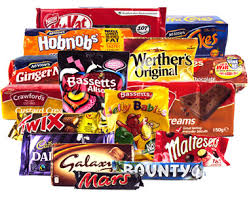DO YOU CRAVE SUGAR?
Facts about Sugar
- It boosts your mood by producing the hormone serotonin in the brain which is known as the happy hormone.
- Offers a temporary energy boost
- It increases the level of toxic free radicals
- Sugar affects immunity
Benefits of reducing your sugar intake
According to the US Department of Agriculture, a safe level of sugar is about 1 and a half ounces a day. If you can reduce your intake to this or even lower you will immediately and dramatically improve your health. You will have more energy and will be ill less often. You will find it easier to control your weight and your skin is less likely to be wrinkled.
The Solution
Only 30% of the sugar we eat is actually in the form of obvious sugars such as chocolate, sweets, cakes etc… the rest comes from what is known as hidden sugars such as drinks, low fat yoghurt’s, baked beans, orange juice. Did you know that an average tin of beans contains around 30g or sugar and glass of orange juice about 20g, therefore just one glass of orange juice and a portion of baked beans would be your total daily sugar allowance.
Sugar and Energy
The most immediate problem with sugar is the effect it has on our energy.
- Sugar is absorbed rapidly into the blood stream
- This sudden rush panics the body and higher than normal amount of insulin is released.
- The insulin then moves the sugar out of the bloodstream, leaving the body without any accessible fuel
- You then feel tired, which send the body into panic again as it needs fuel fast. It knows that the last time it ate sugar and it got a surge of energy and so it stimulates the brain to start craving sugar.
This then becomes a vicious circle, and one that gradually ends up with us taking in much more sugar than is good for us.
Sugar Detox
Anything over 20g of sugar is classed as a high sugar food. When checking food labels look for things like sucrose, dextrose, maltose, glucose (anything ending in ose). If these things appear in the first three ingredients, or more than two appear in any one food then it will most likely contain too much sugar. For the first two weeks you should avoid and eliminate all these types of food from you diet whilst trying to break the sugar cycle. Basically you need to abstain form sugar so that your tastebuds get attuned to sugar. If you can do this your tastebuds will be less dependent on sugar and eventually you will want it less and less.
Post views: 1015
